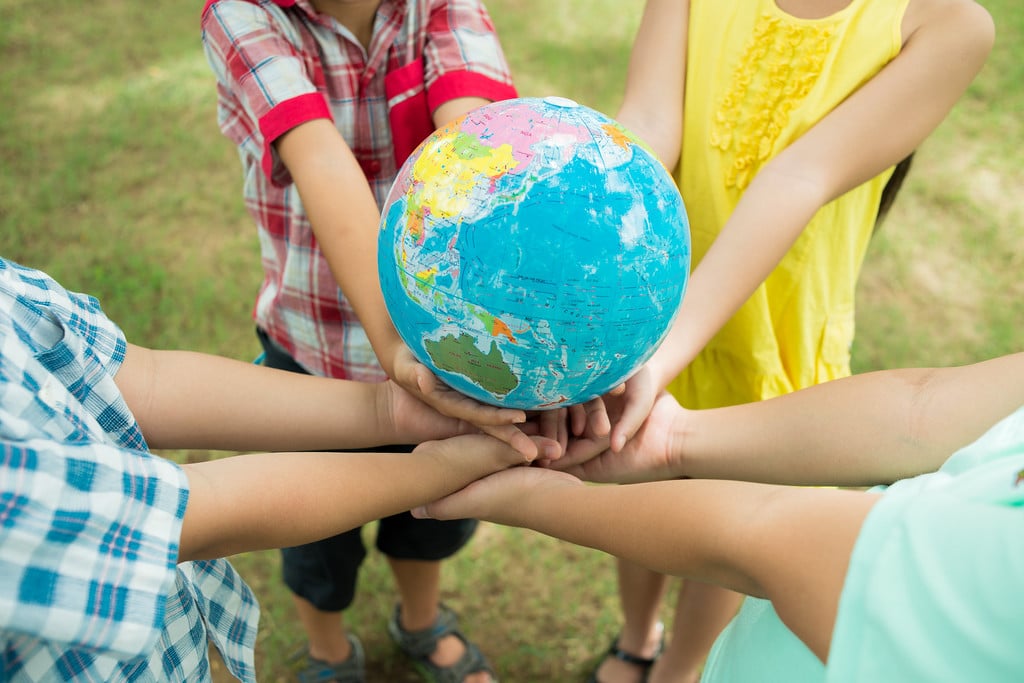
Last week Southern California was rattled by 3 different earthquakes, the largest measuring on the scale at 7.1. For many of us who have lived here in California this is nothing new. Most of us have experience some sort of tremor here in the Golden State, nothing so big that we even second guess ourselves in checking our social media accounts to make sure it wasn't just a case of Vertigo because of our old age. That's definitely what I thought when my dining table started to sway back and forth that 4th of July afternoon.
Then my 3 year old came walking out of his room and started to tell me that his books we're moving from his shelf. That's when I remembered that we live in Earthquake Country and even though it's been awhile since we've had a good shaker, us Californians are always aware that the "Big One" is coming.
This was also my toddler's first experience of the Earth shaking from under him, if you don't count the time that we we're at the Science Center standing in their Earthquake simulator machine. The first shaker did not bother him so much but when the 7.1 hit I could tell that he was shaken up. He kept asking me if the Earth was going to stop shaking and when he finally felt like it was safe to let go of me he asked "Mom, where do Earthquakes come from?" This was when I tried to remember all the important facts about the Earth's crust from my middle school Geology class. Then I decided instead of telling him that earth was just in the mood to dance I thought it best to give him the real facts in the best way I could share it to a 4 year old.
Here are a few pointers that I believe would help ease a child understand why the ground beneath him occasionally likes to move.
#1 Make sure to not turn the news on.
What I had noticed with my son when the 7.1 quake hit was that he was much more aware this time around about how extreme this event was. We we're in the middle of eating dinner and as the entire family tuned into all the breaking news activity on the television, I turned to my son and saw how concerned he looked. Because all the adults around him had a look of worry on their faces this did not make him feel comfortable. He then told the entire room that he would like to change the movie and did not want the earth to shake anymore.
#2 Explain to your child why Earthquake happens.
Children are much smarter than we give them credit for. If we give them scientific facts about what is happening in their surroundings you will be surprise on how much of this information will retain within them. A great place to find information to share to children is The National Geographic Kids website.
#3 Ask them if they are feeling scared
When the Earthquake happened my son ran straight to me. I did my best to not have the look of concern and when I finally stopped trembling myself. I asked him how he was feeling. He was quiet and for my son who has plenty to say I knew it was unusual. I told him that as long as our family is together we will all be safe. Comforting him made a big difference for him.
#4 Share with them the importance of being prepared
After everything had settle down, I had told my son exactly what he needed to do if another Earthquake had hit and he was in school. Stop, Find a table you could go under on and always protect your head. It was also comforting to know that his school had done an Earthquake drill a few days after. I also told him that his Dad and I would be there to pick him up as fast as we can get to him if such an event were to happen.

California has many museums that offers FREE information for everyone about the science of Earthquakes some even have permanent and dedicated exhibit about the wonders of Earthquakes.
The California Science Center has a permanent Exhibit where the entire family can learn more about Earthquakes and how structures in this day and age are able to surpass such seismic events.
Admission to the Science Center is Free (excludes Imax and Special Exbihits) To reserve your tickets click HERE
The Griffith Observatory offers information about our Planet and have an interactive area that focus on Earthquakes and how they are measures.
Admission to the Observatory is Free. Click HERE for more information
The USGS website also has information that is catered to children who are interested in learning more about the science of Earthquake. click HERE
To make your own Disaster Preparedness Kit head on over to https://www.ready.gov/build-a-kit to get a list of what should be in your kit.



